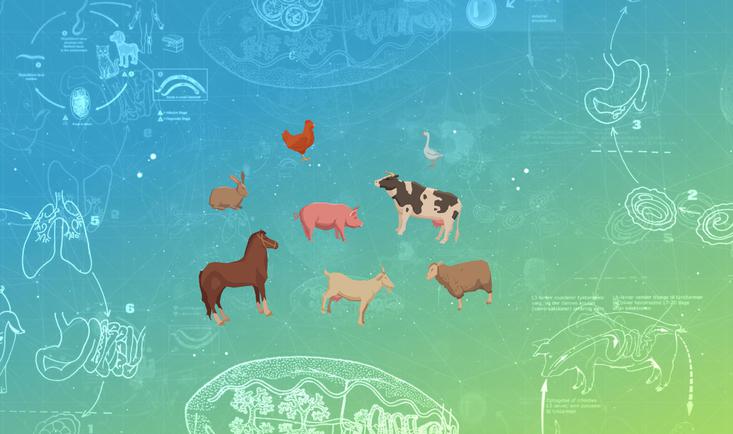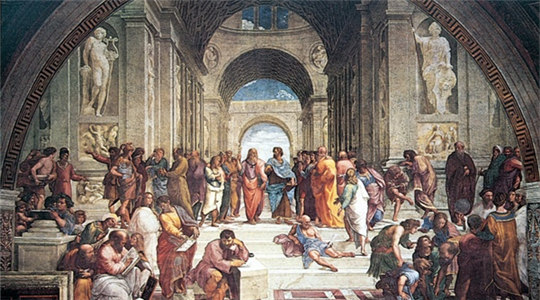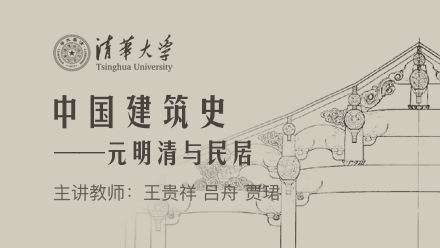
当前课程知识点:Plato, Socrates, and the Birth of Western Philosophy > Seeking “fu”(福)——A Spirit of Religions > 5.The religious trends in the late period of ancient Greek philosophy(4) > The religious trends in the late period of ancient Greek philosophy(4)
返回《Plato, Socrates, and the Birth of Western Philosophy》慕课在线视频课程列表
返回《Plato, Socrates, and the Birth of Western Philosophy》慕课在线视频列表
-1.Etymology
-2.Definition and the History of Philosophy
--Definition and the History of Philosophy
-3.Religion
--Religion
-4.Culture
--Culture
-5.Theory of Cultural Transformation and Interaction: Five theoretical premise
--Theory of Cultural Transformation and Interaction: Five theoretical premise
-6.Theory of Cultural Transformation and Interaction:Five Basic Position
--Theory of Cultural Transformation and Interaction:Five Basic Position
-7.The Significance of Theory of Cultural Transformation and Interaction
--The Significance of Theory of Cultural Transformation and Interaction
-Self-test Exercises
-Thinking Questions
-1.The Birth Environment of the Greek Philosophy(1)
--The Birth Environment of the Greek Philosophy(1)
-2.The Birth Environment of Greek Philosophy(2)
--The Birth Environment of Greek Philosophy(2)
-3.The Stages and Schools of Greek Philosophy(1)
--The Stages and Schools of Greek Philosophy(1)
-4.The Stages and Schools of Greek Philosophy(2)
--The Stages and Schools of Greek Philosophy(2)
-5.The Local Characteristics of Ancient Greek Philosophy and the progress of internationalization(1)
--The Local Characteristics of Ancient Greek Philosophy and the progress of internationalization(1)
-6.The Local Characteristics of Ancient Greek Philosophy and the progress of internationalization(1)
--The Local Characteristics of Ancient Greek Philosophy and the progress of internationalization(1)
-7.The termination of Ancient Greek Philosophy
--The termination of Ancient Greek Philosophy
-Self-test Excercises
-Thinking Questions
-1.A transition to rational thinking(1)
--A transition to rational thinking(1)
-2.A transition to rational thinking(2)
--A transition to rational thinking(2)
-3.A transition to rational thinking(3)
--A transition to rational thinking(3)
-4.A transition to rational thinking(4)
--A transition to rational thinking(4)
-5.Heraclitus’ thinking
-6.Parmenides’ thinking(1)
-7.Parmenides’ thinking(2)
-Self-test Excercises
-Thinking Questions
-1.Seeking the origin:the early philosophers(1)
--Seeking the origin:the early philosophers(1)
-2.Seeking the origin:the early philosophers(2)
--Seeking the origin:the early philosophers(2)
-3.Seeking the essence: Plato’s theory of Form (1)
--Seeking the essence: Plato’s theory of Form (1)
-4.Seeking the essence: Plato’s theory of Form (2)
--Seeking the essence: Plato’s theory of Form (2)
-5.Seeking to on: Aristotle’s ontology and metaphysics (1)
--Seeking to on: Aristotle’s ontology and metaphysics (1)
-6.Seeking to on: Aristotle’s ontology and metaphysics (2)
--Seeking to on: Aristotle’s ontology and metaphysics (2)
-Self-test Excercises
-Thinking Questions
-1.The lexical meaning
-2.Epistemology(1)
-3.Epistemology(2)
-4.Epistemology(3)
-5.Epistemology(4)
-6.The features
-Self-test Excercises
-Thinking Questions
-1.A lexical meaning(1)
-2.A lexical meaning(2)
-3.A lexical meaning(3)
-4.Plato’s Dialectics(authentic true)
--Plato’s Dialectics(authentic true)
-5.Aristotle’s Logics(judging true)(1)
--Aristotle’s Logics(judging true)(1)
-6.Aristotle’s Logics(judging true)(2)
--Aristotle’s Logics(judging true)(2)
-Self-test Excercises
-Thinking Questions
-1.A lexical meaning
-2.The occurrence and development of the ancient Greek Science(1)
--The occurrence and development of the ancient Greek Science(1)
-3.The occurrence and development of the ancient Greek Science(2)
--The occurrence and development of the ancient Greek Science(2)
-4.The occurrence and development of the ancient Greek Science(3)
--The occurrence and development of the ancient Greek Science(3)
-5.The occurrence and development of the ancient Greek Science(4)
--The occurrence and development of the ancient Greek Science(4)
-6.The occurrence and development of the ancient Greek Science(5)
--The occurrence and development of the ancient Greek Science(5)
-7.the technicalization and application of ancient Greek Science(1)
--the technicalization and application of ancient Greek Science(1)
-8.the technicalization and application of ancient Greek Science(2)
--the technicalization and application of ancient Greek Science(2)
-Self-test Excercises
-Thinking Questions
-1.A Lexical meaning
-2.Plato’s theory of Love
-3.The high praise to the love god: a reading on Symposium (1)
--The high praise to the love god: a reading on Symposium (1)
-4.The high praise to the love god: a reading on Symposium (2)
--The high praise to the love god: a reading on Symposium (2)
-5.The high praise to the love god: a reading on Symposium (3)
--The high praise to the love god: a reading on Symposium (3)
-6.The high praise to the love god: a reading on Symposium (4)
--The high praise to the love god: a reading on Symposium (4)
-Self-test Excercises
-Thinking Questions
-1.A lexical analysis
-2.The development of the Classic Greek Ethics(1)
--The development of the Classic Greek Ethics(1)
-3.The development of the Classic Greek Ethics(2)
--The development of the Classic Greek Ethics(2)
-4.The development of the Classic Greek Ethics(3)
--The development of the Classic Greek Ethics(3)
-5.The development of the Classic Greek Ethics(4)
--The development of the Classic Greek Ethics(4)
-6.From the ultimate goodness to the common goodness(1)
--VideoFrom the ultimate goodness to the common goodness(1)
-7.From the ultimate goodness to the common goodness(2)
--From the ultimate goodness to the common goodness(2)
-Self-test Excercises
-Thinking Questions
-1.A lexical meaning
-2.Ancient humanistic trend of thoughts(1)
--Ancient humanistic trend of thoughts(1)
-3.Ancient humanistic trend of thoughts(2)
--Ancient humanistic trend of thoughts(2)
-4.Ancient humanistic trend of thoughts(3)
--Ancient humanistic trend of thoughts(3)
-5.A theoretical summary
-Self-test Excercises
-Thinking Questions
-1.A lexical analysis
-2.The story of Gyges
-3.The Ancient theory of justice(1)
--The Ancient theory of justice(1)
-4.The Ancient theory of justice(2)
--The Ancient theory of justice(2)
-4.The Ancient theory of justice(3)
--The Ancient theory of justice(3)
-Self-test Excercises
-Thinking Questions
-1.An explanation to the related words
--An explanation to the related words
-2.A Platonic Republic
-3.Cicero’s people’s Republic(1)
--Cicero’s people’s Republic(1)
-4.Cicero’s people’s Republic(2)
--Cicero’s people’s Republic(2)
-Self-test Excercises
-Thinking Questions
-1.A lexical analysis
-2.The religious trends in the late period of ancient Greek philosophy(1)
--The religious trends in the late period of ancient Greek philosophy(1)
-3.The religious trends in the late period of ancient Greek philosophy(2)
--The religious trends in the late period of ancient Greek philosophy(2)
-4.The religious trends in the late period of ancient Greek philosophy(3)
--The religious trends in the late period of ancient Greek philosophy(3)
-5.The religious trends in the late period of ancient Greek philosophy(4)
--The religious trends in the late period of ancient Greek philosophy(4)
-6.The collision between faith and reason(1)
--The collision between faith and reason(1)
-7.The collision between faith and reason(2)
--The collision between faith and reason(2)
-Self-test Excercises
-Thinking Questions
-1.An explanation to the related words
--An explanation to the related words
-2.Communion with gods(1)
-3.Communion with gods(2)
-4.Communion with gods(3)
-5.Communion with gods(4)
-6.Plotinus’ mystical system of thoughts
--Plotinus’ mystical system of thoughts
-Self-test Excercises
-Thinking Questions
-1.The local characteristics of the ancient Greek Philosophy
--The local characteristics of the ancient Greek Philosophy
-2.The progressive universalization of the ancient Greek Philosophy
--The progressive universalization of the ancient Greek Philosophy
-3.The basic spirits of the ancient Greek Philosophy(1)
--The basic spirits of the ancient Greek Philosophy(1)
-4.The basic spirits of the ancient Greek Philosophy(2)
--The basic spirits of the ancient Greek Philosophy(2)
-Self-test Excercises
-Thinking Questions



